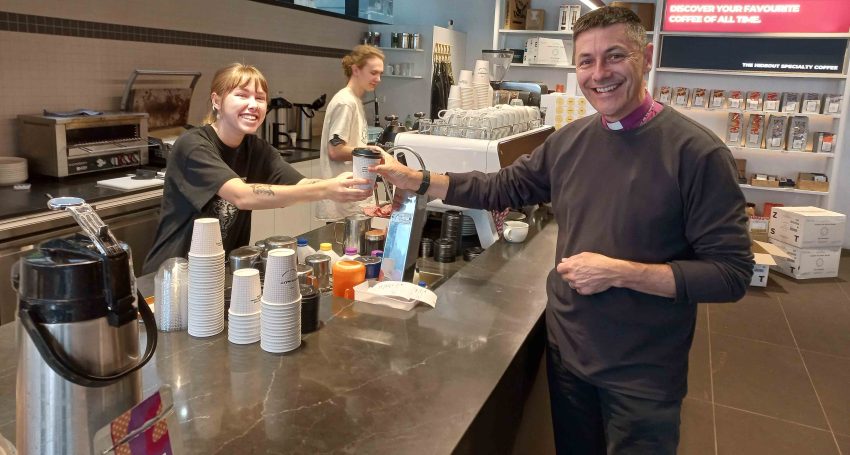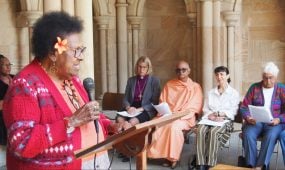Lessons from a benevolent barista
Reflections
“Two days later I returned. Halfway to the counter, I was greeted by a smiling barista with, ‘Hello, Jeremy! A latte today?’ I realised in that moment that I had found my new favourite café. What a difference it makes when someone remembers your name, welcomes you and makes you feel like you belong,” says Bishop Jeremy Greaves

Many people who know me are aware that I am particular about my coffee.
In fact, I am so particular that after Sunday morning services, I will often opt for tea or a cold drink rather than drink instant coffee. Instead I might pick up a latte on the way home if I need a caffeine boost, regardless of what the given brand of instant had promised.
I recently tried a new café in the Brisbane CBD for the first time. My regular haunt had closed its doors after limping through COVID shutdowns and fewer people working in the city.
I lined up, gave my order and my name, and waited to be called before returning to the office, cradling the precious liquid in my hands until I was back at my desk.
Two days later I returned. Halfway to the counter, I was greeted by a smiling barista with, “Hello, Jeremy! A latte today?”
I realised in that moment that I had found my new favourite café.
What a difference it makes when someone remembers your name, welcomes you and makes you feel like you belong.
As American writer Brené Brown writes:
“A deep sense of love and belonging is an irreducible need of all people. We are biologically, cognitively, physically, and spiritually wired to love, to be loved, and to belong. When those needs are not met, we don’t function as we were meant to. We break. We fall apart. We numb. We ache. We hurt others. We get sick.”
Any number of research papers back this up. In their research on the importance of belongingness to wellbeing, social psychologists Roy Baumeister and Mark Leary proposed the “belongingness hypothesis”, which suggests that:
Advertisement
“…human beings have a pervasive drive to form and maintain at least a minimum quantity of lasting, positive, and significant interpersonal relationships” (p.497)
Their research suggested that failure to have one’s belongingness needs met may lead to feelings of social isolation, alienation and loneliness and concluded that “a sense of belongingness is not only a precursor to social connectedness, but also a buffer against loneliness” (p.497).
And, as the Archbishop of Canterbury reminded the Bishops gathered at the recent Lambeth Conference:
“The heart of the Church is deeply relational – go back to 1 Corinthians 13 – it doesn’t matter what we do, what gifts we have, what wonders we carry out, but if we don’t have love and in that context of Corinth – love for one another – if we don’t have that, love for one another, we are a ‘sounding gong or a clanging cymbal’ and, therefore, whatever else comes out of this Lambeth Conference and as we go forward in this next period, at the heart of it must be the deepening and the building of relationship as our first objective…that we love one another – we love God and love one another.”
Advertisement
If it is true, that “the heart of the Church is deeply relational”, then in a society where around one in four people report feelings of extreme loneliness, where people increasingly feel like they do not belong, we have a great gift to offer.
When the simple act of remembering someone’s name can make such a huge difference, what other small things might we do to invite people into a sense of “belongingness” – the belongingness that is at the heart of the Gospel.






